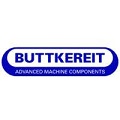
Posted to News on 16th Nov 2015, 13:58
Why do motors fail?
Motors don't just fail because they are old. We have all seen examples of how a motor, if properly taken care of, can far exceed its expected operational lifespan. However, these tend to be the exception to the rule, and nearly every motor will eventually succumb to age and fatigue if not adequately maintained.
There is no single straightforward answer for why motors fail. Unusual loads, power supply anomalies, damaged components or unusual mechanical loads are all potential causes, sometimes in combination. What we can do is break down the multitude of reasons into three specific areas.
Heat - This comes from many factors; the loading on the motor, the ambient temperature that the motor is running in, mechanical stress, even the thickness of the paint. Any or all of these factors, over time, will break down the insulation system, and eventually cause it to fail. Whilst we are talking about heat, it also makes sense to mention lubrication. Some 51 per cent of motor failures can be attributed to bearings, and 80 per cent of these are down to improper lubrication. Just like tyre pressure on a car, the optimal level of lubrication will vary from motor to motor, and application to application depending on variables such as motor speed and operating environment.
Water ingress - Water can enter a motor through various points, and even if an ingress point is not immediately obvious, ambient humidity can cause water to get into the motor. However, a particular trouble spot for water ingress is through the cable gland. This appears to be a particular problem in the food industry, where surfaces and equipment have to be washed down for hygiene reasons. Whilst it is not always possible, given space restrictions, best practice states that the cable gland should be fitted through the bottom of the terminal box. This prevents water from running down the cable into the terminal box.
Incorrect sizing and/or installation - Customers often think that when it comes to motor sizing, bigger is always better. This is a myth. As an ABB Authorised Value Provider part of our responsibility is to ensure that the customer installs the right motor for their application. An incorrectly sized or incorrectly installed motor may be improperly aligned and, whilst flexible couplings are designed to cope with misalignment between shafts, over time it will cause unnecessary stress on the bearings.
It is not possible to prevent every motor failure. However, what we can do is identify common reasons and contributory factors, helping us to take steps to mitigate their effects. Industry is so heavily reliant upon motors that failure can quickly rack up the cost in lost productivity, and that's not to mention the cost of repairing and/or replacing the failed motor itself. By installing your motor correctly, and keeping it properly maintained, you can prolong its operating life by many years.
For more information about ABB drive features, check out our "Ask the experts" video series on the ABB Authorised Value Provider UK YouTube channel, or go to www.abb.co.uk.
ABB Automation Technologies (Drives and Motors)
3100 Daresbury Park
Daresbury
WA4 4BY
UNITED KINGDOM
44 1925 741 111






























